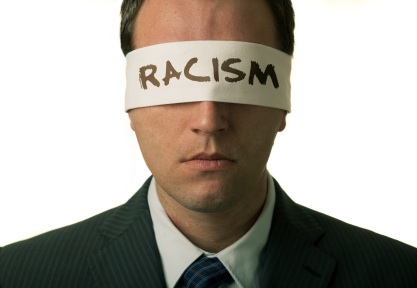Reacting to Improper Racial Comments from Your Managers
In the August 22nd post (Black Sales Journal 8/22, Improper Racial Comments from Your Co-Workers) we discussed how you might want to consider reacting when co-workers make improper or inappropriate comments. Co-workers are obviously peers, and your reactions may not have to be measured. The principals that apply when the individual who makes the comment is your manager or a senior executive may require more calculation and measurement.
Insensitivity and racism exists, and it is not institutional as it is an individual’s personal problem. This insensitivity coupled with a lack of respect for racial differences can be vexing. When it is not handled correctly, it manifests itself as organizations being called racist, when it is actually a particular (or more than one) manager who is the problem.
No one can predict the source or the timing of these types of comments, we just know that as long as you are interacting, there is a possibility that an improper remark will happen.
These are Not Mistakes!
Everyone comes from a different station in life, and their ability to relate to others is hindered by a lack of understanding others and their sensitivity. Sometimes, it comes across as being insensitive, sometimes rude, and in other instances, it can rank as downright boorish. The fact of the matter is that many, but not all of these statements represent unadulterated displays of racial prejudice. Be smart enough to know the difference, as they deserve different courses of action. Be smart, not oversensitive.
I honestly encountered this during my early years of employment, and quickly learned, as will you, who the source of these types of comments would be. These types of comment are not mistakes. They are utterances of ones viewpoints, and in many cases a window into one’s upbringing. I explain this in Black Sales Journal 12/30/2010, Preference, Perceptions, and Prejudice and Your Employer.
I had an opportunity to cover an issue like this in Black Sales Journal 6/27, Changing Racial Perceptions. This is one you should check out. I write about it under the sub-heading “Perceptions – An Example from My Past”. Frankly, as a young sales professional I did not know what to do. I was left speechless, and that was the last time.
I don’t care if it is 2011, these comments do still happen. No one cares about hearing an apology from someone for making the statement when the problem is that someone actually feels this way, and they are your superiors at your place of employement.
Measured Reactions When it comes from “the Top”
When a manager or a senior executive makes a comment that is offensive the other managers and employees who are listening immediately sense the impact of the statement. Many get uncomfortable, and some want to exit. Remember this in the examples of actions that I suggest, it is the moment of truth, but the group is your ally. Groups (the audience to your comment) have a way of being very uncomfortable when someone is singled out, and unjustly aggrieved.
When the comment is made, the audience and you are affected:
- Something wrong has been said
- Someone has been wronged or hurt (You)
- There are witnesses to this wrong, and they are victims as well
It is at this point that your actions are most visible, and most observed. You cannot avoid the spotlight, and your face will quickly show something is a problem.
Here is what you need to remember:
- Don’t be afraid to show that you are disturbed if you are. You do not have to be stoic.
- Show your maturity by not reacting improperly as you are a professional.
- Exiting the conversation speaks volumes, even more than the suggestion of exiting the conversation when it is a peer. Leaving shows your feelings about the comment, and the commenter.
- Match the gravity of the comment to any verbal response you might have, yet I will guarantee you that if the comment has any gravity at all, an “excuse me” will result in a future discussion, or even an apology in the very near future.
Realistically, any apology may be more for having said the comment rather than feeling those things that compelled them to make it. An apology or admission that the comment was inappropriate will show that this comment should not have been uttered.
These Remarks Are About Power
When you hear a remark that is improper and inappropriate from a manager it is usually results in feeling vulnerable, at least at that moment. Factually, you should not accept it even if alcohol is involved. I mention alcohol, as that is a common excuse. The ”he had too much to drink” bit is not kosher, and any manager’s drinking issue is not your problem.
Trust me, no manager wants to have a discussion with his/her manager or human resources about remarks they make involving race, gender, religion, or sexual orientation to a employee. What is even more problematic is if they have to have that conversation because there was more than one incident. Most employers, especially large ones have no tolerance for that discussion, especially after the first time.
The Role of Human Resources
I have had the pleasure of working with some very good HR professionals. As a manager I recognize their focus on the well being of the employee and their willingness to take a manager to task when it is truly necessary.
If you feel aggrieved by a comment, you definitely should approach HR and frankly tell the story. This is definitely a situation where “the truth will set you free”. Advise what was said including the audience, and how that made you feel. Be factual and not emotional.
There are a couple of things that can happen when you talk to HR:
- The manager might be told to have a conversation with you, perhaps including an apology
- The manager can receive a memo of either admonishment or reprimand.
- There is a possibility of the manager being placed in ‘sensitivity or diversity training’.
- If this is a repeat incident, there could be more harsh punishment meted out including termination.
Intelligently realize that you should only involve HR if you really feel aggrieved and they will help you sort it out, as this is not a trivial matter. Don’t be thin skinned or you will lose credibility.
It goes without saying that you need to avoid jokes about any of those forbidden topics, and stay “clean” yourself. Recognize that peers and managers should show you respect, and you should do the same.
Your comments are appreciated.
 August 29, 2011
|
Posted by Admin9!
August 29, 2011
|
Posted by Admin9!

 Categories:
Categories:  Tags:
Tags: 
Your Comments